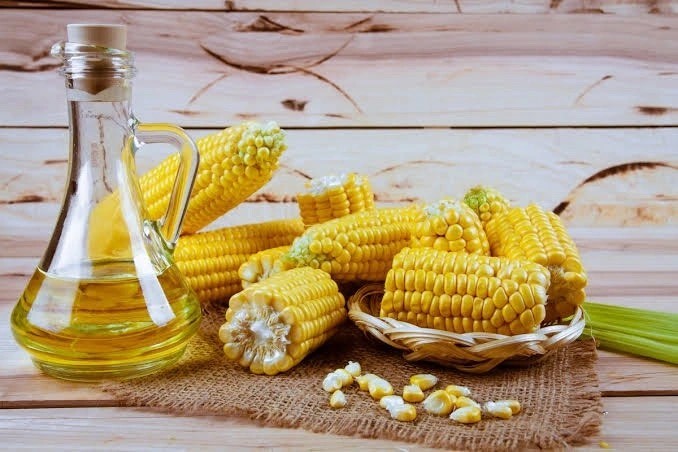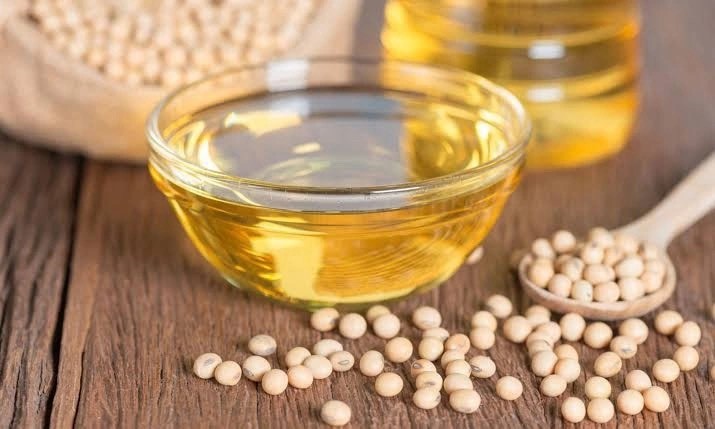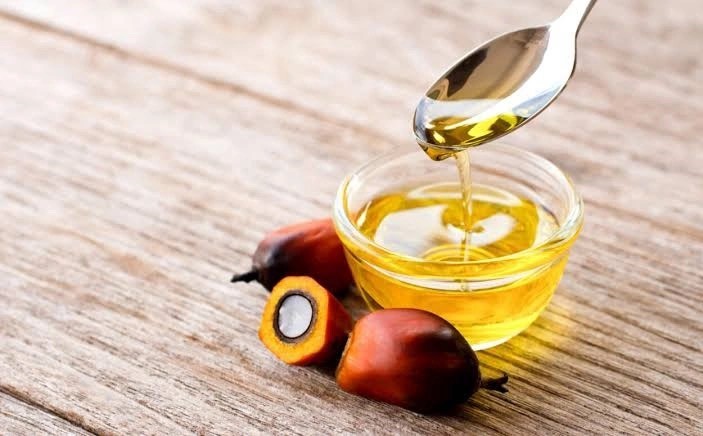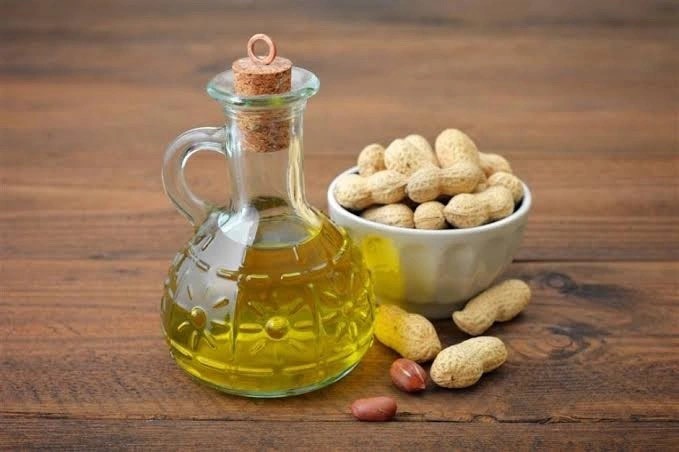Refined Sunflower Oil:

Refined sunflower oil is perfectly clean oil, which preserves all the nutrients during the production process. We offer refined sunflower oil packed in bulk and in PET bottles. Custom design print labels and boxes for the bottles are available by request.
This oil can be used in conditions of extremely high cooking temperatures. Refined sunflower oil is also used in manufacturing of canned food, as well as in soap boiling and paint and varnish industry.
All products comply with state standards and satisfy all the requirements of Ukrainian State standard 4492:2005; meets all ISO 22000 requirements.
Non-GMO, 100% free from any coloring materials, flavors, and anti-foaming agents.
Refined Corn Oil:

Corn oil is a type of vegetable oil that is extracted from the germ of corn (maize) kernels. It is a widely used cooking oil due to its mild flavor, high smoke point, and versatility.
Since corn oil is inherently stable, it offers a variety of functional benefits. And, when you choose corn oil from ADM, you get even more in the way of stability, with the largest portfolio of edible oils in the industry, unmatched technical ingenuity, and the vertical, sustainable supply chain that provides the ADM reliability you expect—and can count on.
Corn oils from ADM offer the best of both worlds—flexibility and stability—with versatile options you can rely on to create the heart-healthy products consumers want. Another bonus? Corn oil is a familiar favorite with consumers, and answers their desires for recognizable ingredients and unsaturated fats in the foods they eat.
You can give consumers the flavorful, heart-healthier foods they want with corn oil ingredients, a top choice in favorite snack foods and more. With a variety of functional benefits and excellent frying qualities, you can deliver a vast array of better-for-you foods that also taste better.
Refined Soybean Oil:

Organic Soybean Oil, derived by extruding dry organic soybean seeds at elevated temperature followed by partial oil extraction. Soy meal is rich in protein content and mainly used in animal feeds.
Soybean oil is made by extracting oil from whole soybeans. This process involves dehulling and crushing soybeans, separating the oil from the rest of the bean, and distilling and refining it to remove contaminants that may affect the flavor, smell and color of the oil. Soybean oil is used in a wide variety of packaged foods, baked goods, snacks, dressings and sauces, in addition to being sold on its own as a cooking oil. It’s considered to be a vegetable oil and is often sold as a blend with other oils, including canola, corn, safflower and sunflower oils.
Product is organically produced and processed according to HACCP norms and regulation NPOP, NOP & EEC 834/2007. Soybean oil is the natural inexpensive oil extracted from whole soybeans. It is the most widely used oil in the World, and is sold as either pure soybean oil or as a main ingredient in vegetable oil. Processed into margarine and shortenings, soybean oil’s 85 percent unsaturated fat profile is among the highest of the vegetable oils. Soybean oil contains 61% polyunsaturated fat and 24% monounsaturated fat. Saturated fats in the diet can raise blood cholesterol levels and increase the risk of heart disease. So healthcare professionals recommend replacing saturated fats with unsaturated fats as much as possible Protein: Min 47%, Oil content: 5 to 8%, Urease activity: below 0.1%, Fiber: 5%, Moisture: Max 7%, KOH: More than 80%, Ingredient Statement: 100% Organic, certified NPOP, NOP and technical International standards. Note: Microbiological specifications can be customized as per buyer’s requirements.
Refined Canola Oil:

Canola oil was first created in the early 1970s as a natural oil. But in 1995, Monsanto created a genetically modified version of canola oil. By 2009, over 90 percent of the Canadian canola oil crop was genetically engineered.
Canola oil has practically taken over as the food processing industry’s oil of choice. Whether it’s mayonnaise, chips, or salad dressings, canola oil is usually the first, second or third ingredient on the list. Unfortunately, the health dangers of canola oil are far beyond what we’ve been led to believe.
So if there aren’t any actual health reasons to use it, why would it be so widely used throughout the food industry? As with most reasons certain ingredients are used over others – the price. Canola oil is extremely inexpensive to grow and harvest. It is also very easy to grow, due to its genetic modifications and the fact that insects won’t go near it.
Refined Palm Oil:

We are a well-known organization for the trade and export of Refined Palm Oil. We offer CP 8 and CP10. These oils are processed from top quality and healthy palm fruits which are sourced from large palm plantations. Our oils are extremely demanded in market for their pleasing aroma, high purity and long shelf life. These oils are obtainable in varied packing option for our valued customers. In addition, we present this oil at highly competitive prices.
Refined palm cooking oil products in the industry have characteristics, namely bright yellow color, soft taste, and excel- lent oxidative stability. This refined palm oil is preferred by the community for food products, such as cooking oil because it is considered a higher quality refined oil compared to reddish-orange oil. Palm oil which is obtained from the mesocarp of the palm fruit, is composed of 50% saturated fatty acids, 40% monounsaturated fatty acids and 10% polyunsaturated fatty acids. The saturated fat components are trace amounts of lauric and myristic acids, and a large amount of palmitic acid (44%). palm oil is used for preventing and treating vitamin A deficiency. It is also used for malaria, heart disease, cancer, and many other conditions, but there is no good scientific evidence to support these other uses.
Olive Oil:

Olive oil is perfectly clean oil which is rich in healthy monounsaturated fats, Studies suggest that oleic acid reduces inflammation and oxidative stress, and may even have beneficial effects on genes linked to cancer. Monounsaturated fats are also quite resistant to high heat, making extra virgin olive oil a healthy choice for cooking. It consists mainly of oleic acid (up to 83%), with smaller amounts of other fatty acids including linoleic acid (up to 21%) and palmitic acid (up to 20%). Extra virgin olive oil is required to have no more than 0.8% free acidity and is considered to have favorable flavor characteristics.
Peanut Oil:

Peanut oil is used in cooking and is also used to make medicine. Peanut oil is the oil from the seed (peanut) of the peanut plant (Arachis hypogaea).
Peanut oil is high in monounsaturated “good” fat and low in saturated “bad” fat. This is believed to help prevent heart disease and lower cholesterol. peanuts are also a good source of dietary fiber and provide a wide range of essential nutrients, including several B group vitamins, vitamin E, minerals such as iron, zinc, potassium and magnesium, antioxidant minerals (selenium, manganese and copper), plus other antioxidant compounds. Peanut oil is high in antioxidants and good fats that can keep your heart healthy and blood sugar levels down. With high levels of vitamin E and monounsaturated and polyunsaturated fats (unsaturated “good fats”), peanut oil could be good for the heart
Vegetable Oil:

Vegetable oils are primarily composed of triglycerides and are typically liquid at room temperature. They contain a greater variety of fatty acids than animal fats. It provides a plethora of health benefits such as reducing the risk of cardiovascular diseases, better metabolism and digestion, lowers chances of breast cancer, and provides omega-3 fatty acids to the body.